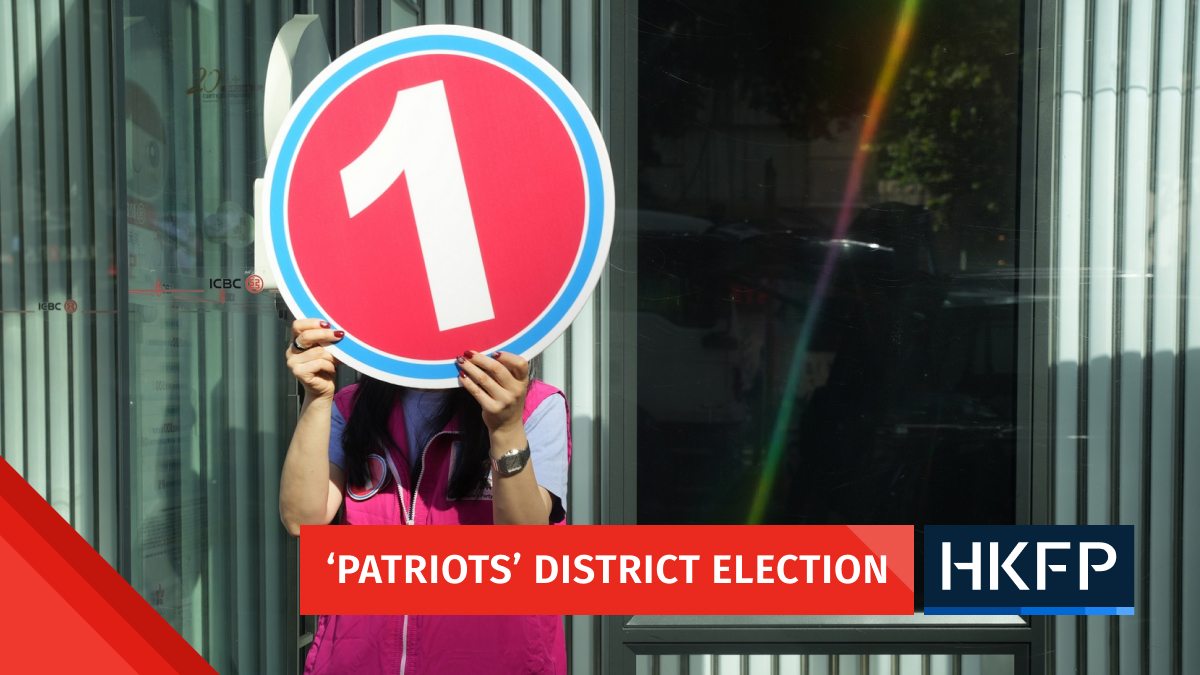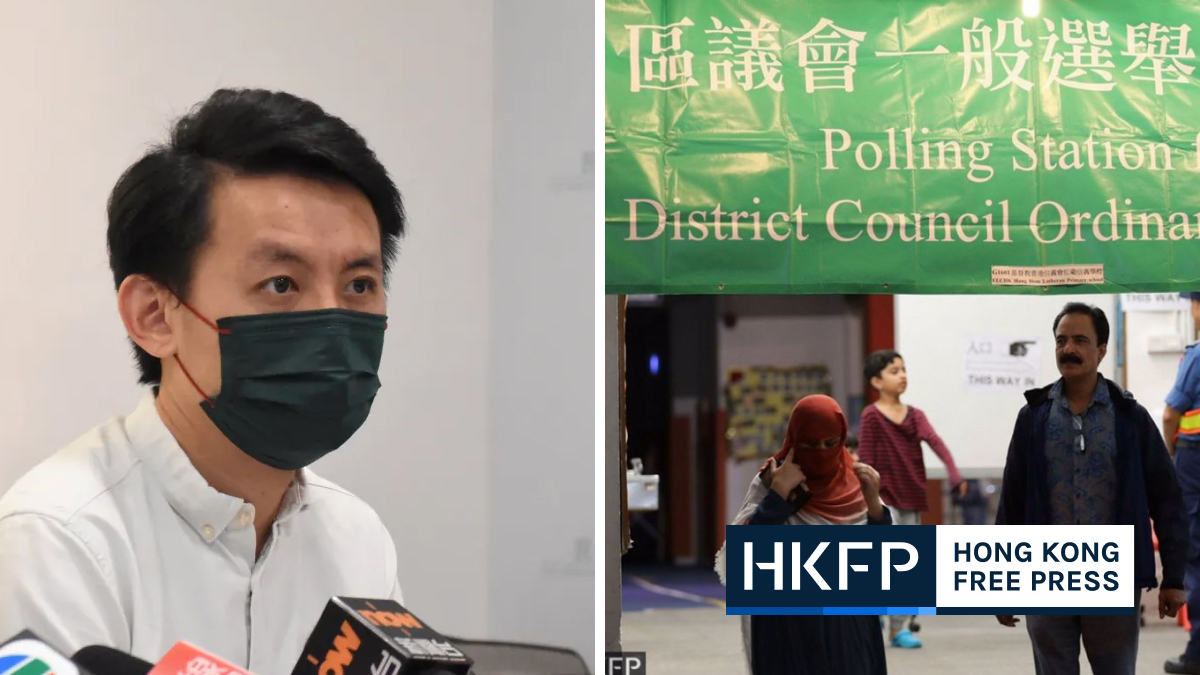At first glance, Tik Chi-yuen’s office – decked out with a dizzying array of Batman toys and knick-knacks – looks more like a crazed collector’s home than a place where a lawmaker-elect devises policy points.
“When I was a child, I thought Batman was so cool and heroic,” Tik said. “The films are also very well written.”
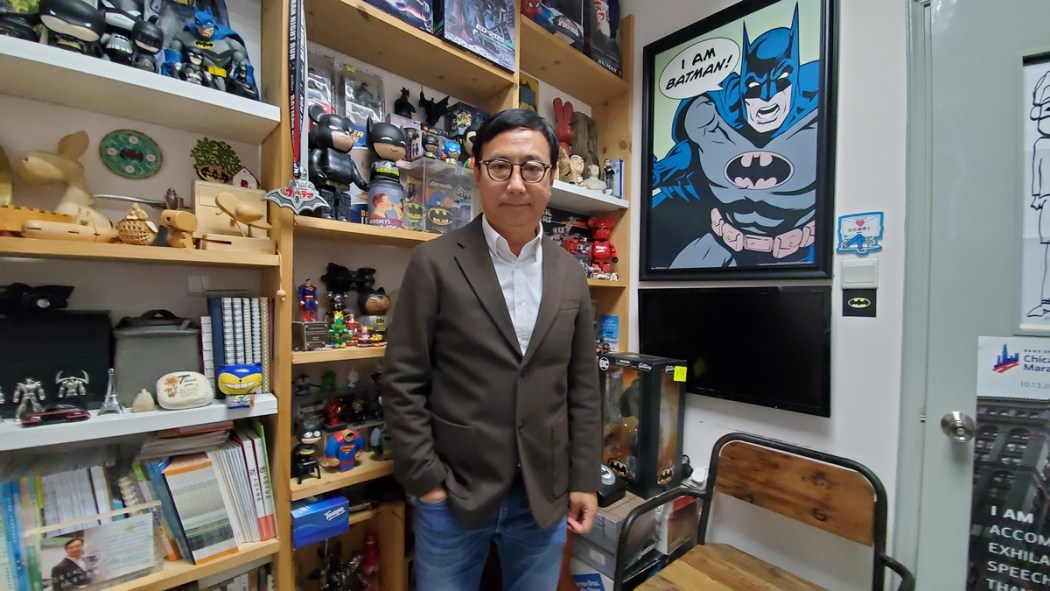
The 64-year-old could use some superpowers himself. As the sole non-pro-establishment figure elected to Hong Kong’s 90-seat legislature in the first race since Beijing overhauled the polling system, Tik admits that the coming four years in the chambers will not be an easy road ahead.
The chair of NGO Hong Kong Institute of Family Education, which offers parenting workshops and counselling services, was elected as a representative of the social welfare sector in the functional constituencies race.
Under Beijing’s electoral overhaul, 30 of the 90 seats in the Legislative Council (LegCo) were fielded by candidates in the functional constituencies, which include professional and special interest groups like tourism, education and transport.

Only 10 per cent of eligible electorate cast a ballot for Tik, but with just 18 per cent of registered voters taking part, that was enough for him to win. He beat his competitors, Chu Lai-ling from the pro-Beijng party DAB and businessman Yip Cham-kai, receiving over 50 per cent of the total votes.
Just 20 seats in the polls were directly elected by the public in geographic elections that yielded a record low voter turnout. Most of Hong Kong’s high-profile democrats are remanded in custody, jailed on protest-related charges, have quit politics or are in self-exile abroad.
Three decades in politics
Speaking to HKFP from his Mong Kok office on Wednesday, Tik said he “likes the darkness and politics” behind Batman. Yet the politics of his favourite fictional character – who seeks revenge after his parents are brutally murdered – are simpler than his own.
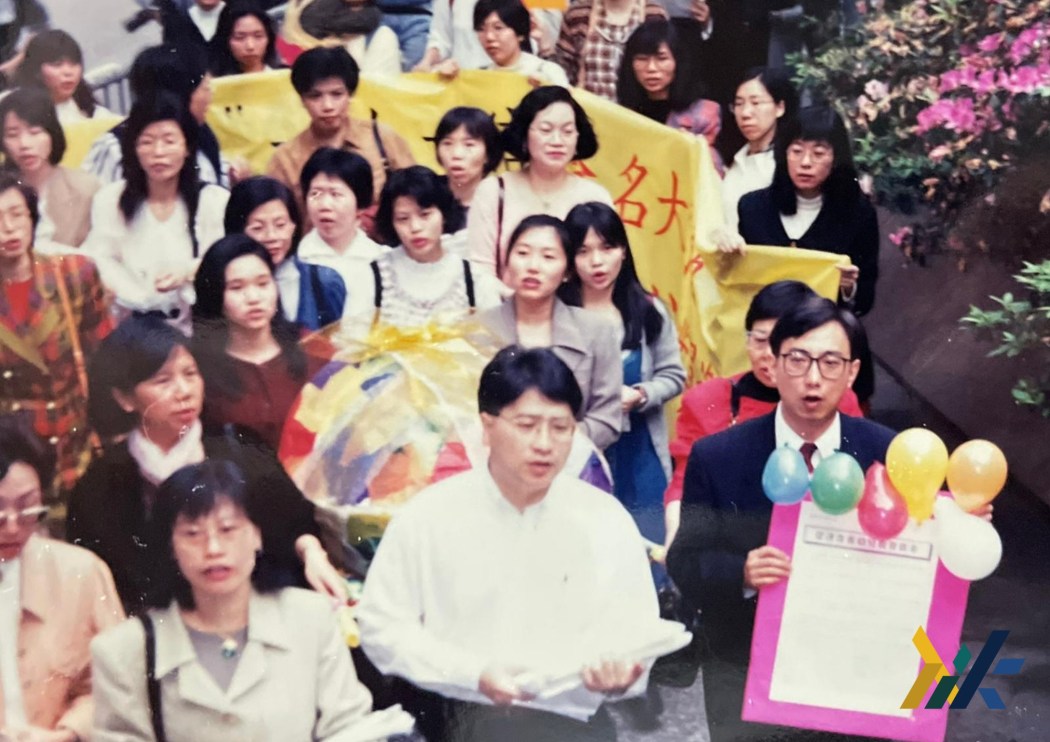
In the 1990s, the political veteran was one of the founders of Hong Kong’s Democratic Party, the city’s main opposition group. Many of its leading members are now in prison.
Two decades later, in 2012, Tik expressed support for the controversial national education curriculum, causing his party – which vehemently opposed the “brainwashing” scheme – to denounce him.
In 2015, he broke with the Democratic Party again when he said he “accepted” Beijing’s proposal to allow citizens to vote for their own Chief Executive with the caveat that the central government picks the candidates.
Tik quit the party later that year and established Third Side, a moderate, self-proclaimed pro-democracy party.
‘Everyone is our friend’
His turnaround has led to many questioning Tik’s political stance, but the lawmaker-elect said that’s not at the forefront of his mind.
“I’m not concerned about labels. People want to create divisions so they slap a label on you,” Tik said. “Putting it roughly, [Third Side] is middle-of-the-road. What we are not is ‘pro-establishment’. What we are not is ‘radical democrats.'”
He added that, if needed, his party would be happy to cooperate with the Liaison Office, Beijing’s top organ in Hong Kong, and the Chief Executive.
“Everyone is our friend,” Tik said. “We have no enemies.”

Asked about his former party members jailed on protest-related and national security charges, Tik said he is “heartbroken” by that reality.
“Yeung Sum and Albert Ho,” he said, referring to two prominent democrats he worked with in the early days of his political career, “were party members for many years.”
Tik said he had visited some of the activists in jail, but declined to give names. “There’s no point in making things awkward.”
Fake news ‘needs to be managed’
The lawmaker-elect is careful with his words and does not appear to have strong views on controversial policies – though they tend to align with the pro-establishment stance.
“Development is necessary,” Tik said, referring to the government’s “Northern Metropolis” plan to redevelop the area along Hong Kong’s border with mainland China into a mega-city. The plan, which aims to provide homes for some 2.5 million people, is touted by Chief Executive Carrie Lam as a way to alleviate the city’s housing crisis.
Critics have pointed out the unknown price tag of the taxpayer-funded project, its likelihood of benefiting deep-pocketed property developers more than citizens themselves, and the authorities’ poor track record in relocating communities.
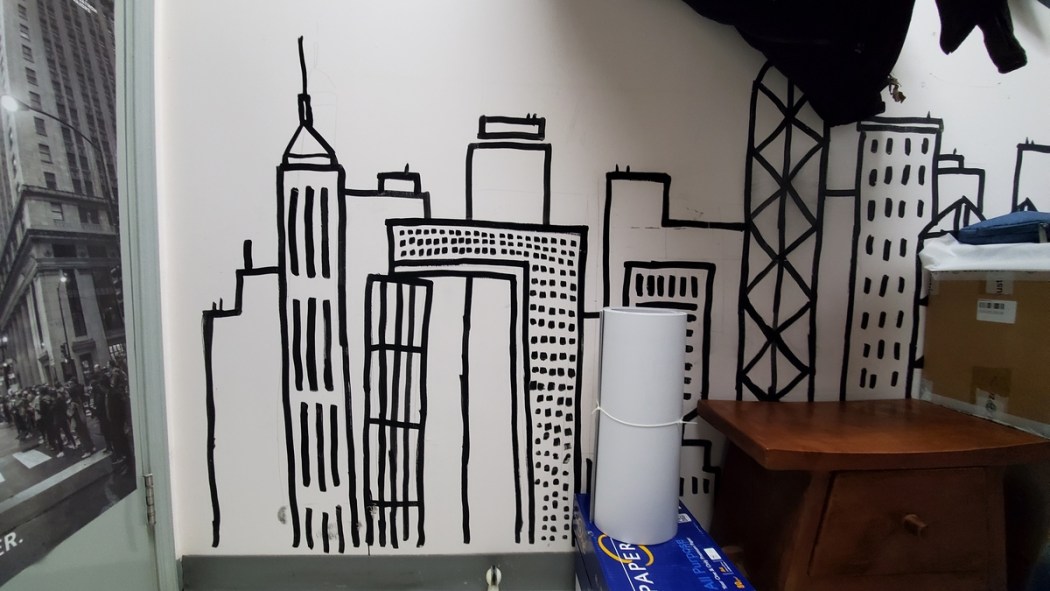
Tik said opposing voices should not “criticise for the sake of criticising,” and it was not constructive for people to “protest all development and then ask why there is no public housing to live in.”
When pressed, he conceded that the government “can do a better job” of balancing the interests of property giants and Hongkongers in its redevelopment plans.
Regarding the government’s floating of a “fake news” law, Tik said the legislation should not pass if it tightens freedom of speech. He said the law was necessary, however, to target “fake news” in Hong Kong – but did not point to specific examples of misinformation.
“Some news say certain things are happening, but they’re not. This needs to be managed,” he said.
‘Favourable conditions’ for democracy
Still, Tik maintains that he is a non-establishment voice. Asked which of his political views overlap with the opposition camp, he said the pro-democracy Hong Kong Professional Teachers’ Union – which disbanded in August after it came under Chinese state media attack – had “contributed immensely” to the education sector.
A day after the interview, when a reporter called to ask his reaction to the University of Hong Kong’s removal of the Tiananmen Massacre statue Pillar of Shame, he said that “actions that increase the distance between the people and the government are pointless.”
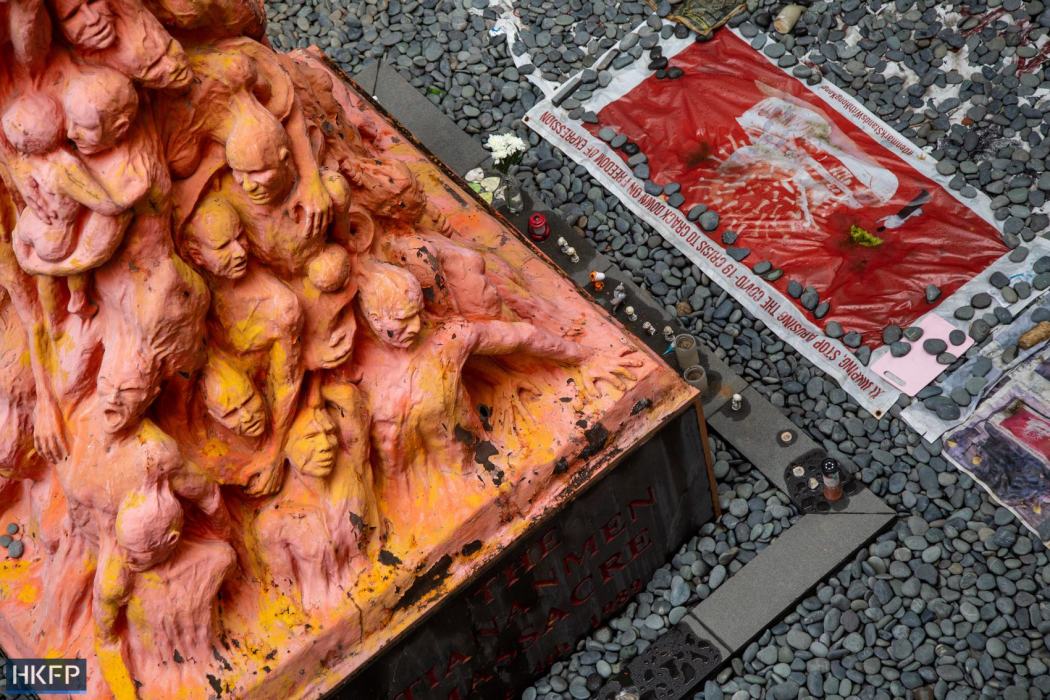
Tik added that he had attended a number of Tiananmen vigils in Victoria Park over the decades. The event was banned last year and earlier this month eight activists – including the founder of defunct pro-democracy paper Apple Daily, Jimmy Lai – were sentenced in connection with it.
The lawmaker-elect said that he is committed to fighting for universal suffrage, and in LegCo, he plans to push for a debate to urge the government to “create favourable conditions” to implement it.
He did not elaborate on what “favourable conditions” entail.
Legislature ‘still able’ to monitor the gov’t
When Tik takes his oath of office on January 3 along with other new lawmakers, it won’t be his first rodeo.
He was initially elected to the legislature in 1991, the year that LegCo held its first general polls. Back then, he won the second-highest number of votes in his district, New Territories North.

In his four-year tenure at that time, Tik said, LegCo lacked the drama that characterised the politically divided legislature in recent times. “There was no filibustering, no fighting, no blanket opposition of everything the government says. The different parties cooperated,” he added.
Tik admitted that the incoming lawmakers are politically less diverse – not “colourful,” as Beijing has repeatedly said – and that he has limited power. As the sole opposition figure, his single vote would not be able to veto a bill supported by the other 89 lawmakers.
Despite the radically different make-up of the legislature and Beijing’s broad powers in Hong Kong under the national security law, Tik insisted that the legislature will still be able to perform the same functions it did when he was a lawmaker 30 years ago.
“The space for dialogue, for critiquing the government?” Tik said. “No, I don’t think that has changed.”
LATEST on the ‘patriots only’ poll
Ex-student leader seeks to challenge Hong Kong election law over inciting blank votes in 2021 ‘patriots-only’ legislative race
Over 90% of Hong Kong’s newly elected district councillors sit on the three committees that decide who runs
Hong Kong Democratic Party endorses 8 candidates for first ‘patriots-only’ district council election
Hong Kong 47: Democrats ‘lacked willpower’ in the past, ex-Hospital Authority union chief tells court
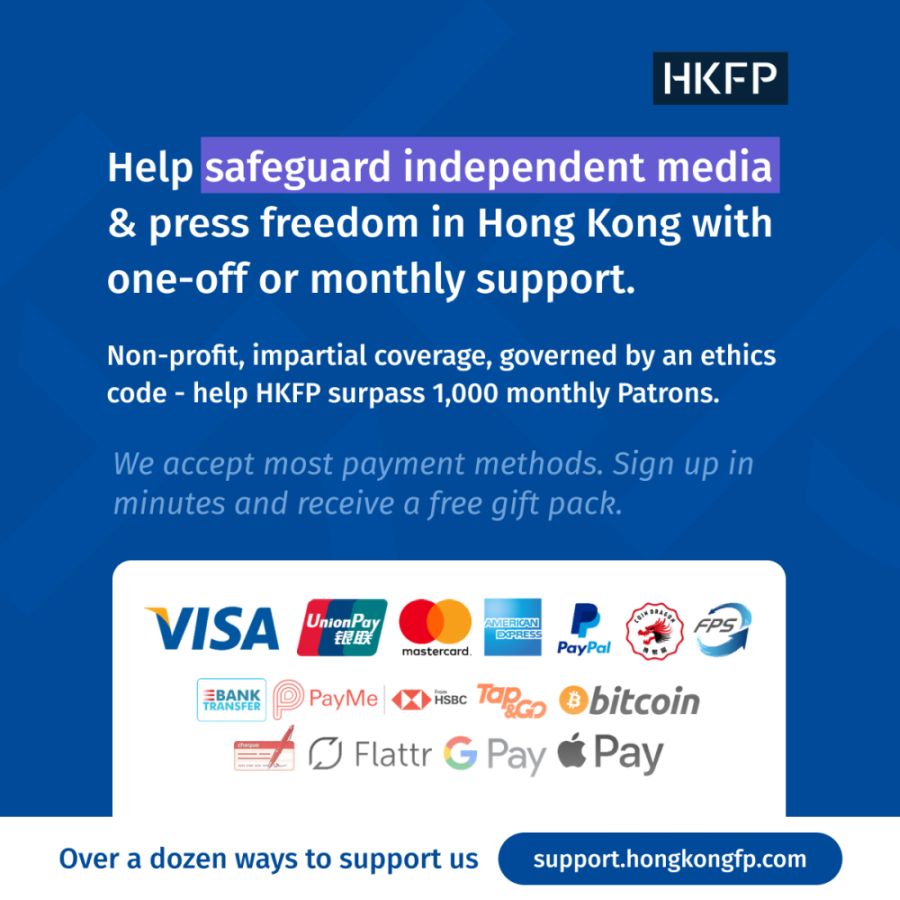
Support press freedom & help us surpass 1,000 monthly Patrons: 100% independent, governed by an ethics code & not-for-profit, Hong Kong Free Press is #PressingOn with impartial, award-winning, frontline coverage.


